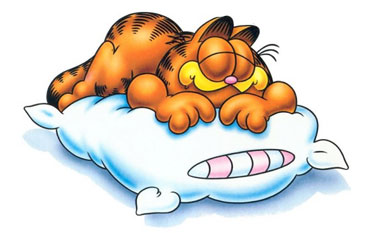Why 4-6 Hours of Sleep Is Not Enough

Photo Credit: http://www.eattoperform.com
April 18, 2017
Sleep is one of the most essential needs that everyone has to have.
Whether it’s two hours or 12 hours, it’s a part of everyone’s daily routines that benefits their performance and their health.
Researchers have proven that after people sleep, they retain more information and perform better memory tasks.
Our bodies all require long periods of sleep so that we are able to reinstate and revive, grow our muscle, repair tissues, and be able to unify hormones.

Some people only need what seems to be a couple hours of sleep. These people are called “Short Sleepers.” They only need a short amount of sleep every night instead of sleeping the recommended eight hours.
Senior Jacob D’Amore explains how he feels the next morning after only getting a couple hours of sleep each night.
“I get between four to six hours of sleep during the week,” said D’Amore. “No matter how much I sleep, I get certain times where my brain doesn’t work for me throughout the day. I can usually function with just four hours of sleep, but it could be because I’m used to it. But either way my brain does not work until at least 10:30 am.”
Students at Susquehannock High School took a poll throughout the week. 76 random voters voted for the average amount of hours they sleep in one night.
Their options were two to three hours, four to six hours, eight to ten hours and 11 to 12 hours of sleep.
The results, two voted for two to three hours of sleep, 25 voted for eight to ten hours, 47 voted for four to six hours and two voted for 11 to 12 hours of sleep.
Senior Destiny Rositzky is one of the people that voted for only getting four to six hours.

“I only get a couple hours of sleep each night because of school activities every night and then the workload teachers give it’s sometimes impossible to do it all,” said Rositzky. “Because of the stress of getting everything done, I stay up striving to get done, so I don’t fail. Then I come to school exhausted and not able to work to my full potential because I just have no energy.”
Different sleeping methods and home remedies help some students to be able to sleep at night.
Here are two ways that can help you to sleep better at night.
1. Make sure your room is cool. Having a temperature of under 70 degrees in your bedroom can help you relax your body and help to make sure you aren’t tossing and turning all night from the heat.
2. Make sure you make your room is dark. Having low lighting or even no light at all in your bedroom will cause less stimulation. People sleep better when they are in a calm state of mind. Darkness helps increase the amount of Melatonin in your body. Melatonin helps you sleep a lot better, and keeps your body calm throughout the night.

Senior Patrick McDonald talks about a method he uses to help him fall asleep on those restless nights.
“I go through these phases where I sleep fine, and then there will be different weeks that I can barely get four hours of sleep,” said McDonald. “If I can’t fall asleep, then I will get up for about ten minutes and that causes my body to become more tired. Then after that, I can just go back to bed a lot easier.”
It’s very important for everyone to get a good amount of sleep every night to be able to function properly and keep their bodies up and running successfully for the whole day.




